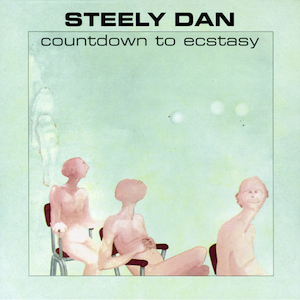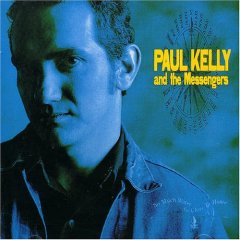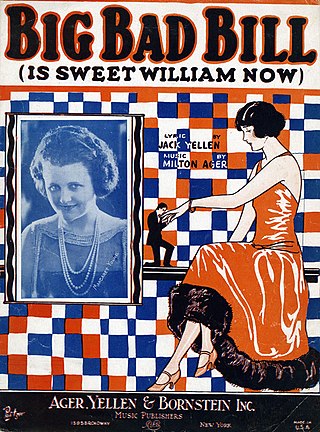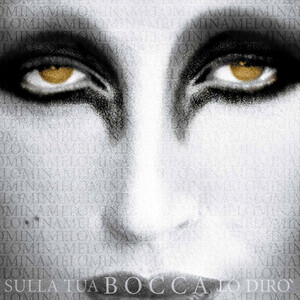Related Research Articles

Countdown to Ecstasy is the second studio album by American rock band Steely Dan, released by ABC Records in July 1973. It was recorded at the Village Recorder in West Los Angeles, California, except for Rick Derringer's slide guitar part for "Show Biz Kids", which was recorded at Caribou Ranch in Nederland, Colorado. After the departure of vocalist David Palmer from Steely Dan, the group recorded the album with Donald Fagen singing lead on every track.

"Misty" is a jazz standard written in 1954 by pianist Erroll Garner. He composed it as an instrumental in the traditional 32-bar format, and recorded it for the album Contrasts. Lyrics were added later by Johnny Burke. It appeared on Johnny Mathis' 1959 album Heavenly, and this recording reached number 12 on the U.S. Pop Singles chart later that year. It has since become the signature song of Mathis.

So Much Water So Close to Home is an album by Australian rock band Paul Kelly and the Messengers and was originally released in August 1989. The title comes from a short story of the same name by author Raymond Carver. Carver died in August 1988. Kelly co-wrote the score for the 2006 Australian film Jindabyne, which was also based on the same story. The entire album was recorded in the U.S. with producer Scott Litt, best known for his work with R.E.M. It was released on Mushroom/White Records in Australia & New Zealand and A&M Records for the rest of the world. The album peaked at #10 on the ARIA album charts, but none of its singles, "Sweet Guy", "Careless" and "Most Wanted Man in the World" had any Top 40 chart success. All tracks for the album were written by Kelly, who provided vocals, guitar and harmonica and also co-produced with Litt.

Phyllis Linda Hyman was an American singer, songwriter, and actress. Hyman is best known for her music during the late 1970s through the early 1990s. Some of her most notable songs were "You Know How to Love Me" (1979), "Living All Alone" (1986) and "Don't Wanna Change the World" (1991).
"Come Rain or Come Shine" is a popular music song, with music by Harold Arlen and lyrics by Johnny Mercer. It was written for the Broadway musical St. Louis Woman, which opened on March 30, 1946, and closed after 113 performances.

Mark Howe Murphy was an American jazz singer based at various times in New York City, Los Angeles, London, and San Francisco. He recorded 51 albums under his own name during his lifetime and was principally known for his innovative vocal improvisations. He was the recipient of the 1996, 1997, 2000, and 2001 Down Beat magazine readers' jazz poll for Best Male Vocalist and was also nominated five times for the Grammy Award for Best Vocal Jazz Performance. He wrote lyrics to the jazz tunes "Stolen Moments" and "Red Clay".
Folk jazz is a musical style that combines traditional folk music with elements of jazz, usually featuring richly texturized songs. Its origins can be traced back to the 1950s, when artists like Jimmy Giuffre and Tony Scott pursued distinct approaches to folk music production, initially, as a vehicle for soloist expression. Many already popular musical styles diversified as counter-culture bands embraced experimentation and inclusiveness in their works.

The Tony Williams Lifetime was a jazz fusion group led by drummer Tony Williams. The band was pivotal in the development of fusion and featured various noteworthy jazz and rock musicians throughout its history, including guitarists John McLaughlin and Allan Holdsworth, keyboardists Larry Young and Alan Pasqua, and bassists Jack Bruce and Ron Carter.
"Charley, My Boy" is a song with music by Ted Fio Rito and lyrics by Gus Kahn. The Russo-FioRito Oriole Orchestra introduced the song in 1924. The most popular recording was released by Eddie Cantor. The sheet music was published for voice and piano by J. Albert & Son.
"Spring is Here" is a 1938 popular song composed by Richard Rodgers, with lyrics by Lorenz Hart for the musical I Married an Angel (1938), where it was introduced by Dennis King and Vivienne Segal.
Mike Melvoin was an American jazz pianist, composer, and arranger. He served as chairman and president of The Recording Academy and worked as a prolific studio musician, recording with Frank Sinatra, John Lennon, The Jackson 5, Natalie Cole, and The Beach Boys. Melvoin was nominated for the 2003 Grammy Award for Best Jazz Instrumental Solo for "All or Nothing at All" from his album It's Always You.

Winter in America is a studio album by American vocalist Gil Scott-Heron and keyboardist Brian Jackson. It was recorded in September to October 1973 at D&B Sound Studio in Silver Spring, Maryland and released in May 1974 by Strata-East Records. Scott-Heron and Jackson produced the album in a stripped-down fashion, relying on traditional African and R&B sounds, while Jackson's piano-based arrangements were rooted in jazz and the blues. The subject matter on Winter in America deals with the African-American community and inner city in the 1970s.

"Big Bad Bill (Is Sweet William Now)" is a song with music by Milton Ager and lyrics by Jack Yellen, written in 1924. The song became a vocal hit for Margaret Young accompanied by Rube Bloom, and an instrumental hit for the Don Clark Orchestra.

Giuni Russo was an Italian singer who specialised in experimental music after a short successful stint as an art-pop singer in the early 1980s. With her five-octaves range, she could produce extremely high notes and experimental sounds. She sang in Italian, English, French, German, Chinese, Spanish, Hebrew, Arabic, Persian and Latin.

Porgy & Bess is a 1997 album by the jazz saxophonist Joe Henderson, released on Verve Records. It contains Henderson's arrangements of music from George Gershwin's opera Porgy and Bess. It was his final album as a leader.

Giuseppe Cristiano Malgioglio is an Italian composer, singer-songwriter, and television personality.
"E penso a te" is a song composed in 1970 by Lucio Battisti based on the lyrics by Mogol. Initially sung by Bruno Lauzi, it was subsequently re-recorded by numerous other artists. The most popular version remains the one which its author gave in 1972.

Sulla tua bocca lo dirò is an album by Italian singer Mina released on 20 February 2009. The title of the album is taken from a line in the aria Nessun dorma Sulla tua bocca lo dirò fremente, ed il mio bacio scioglierà il silenzio che ti fa mia...

Alan Bergman and Marilyn Keith Bergman were an American songwriting duo. Married from 1958 until Marilyn's death, together they wrote music and lyrics for numerous celebrated television, film, and stage productions. The Bergmans enjoyed a successful career, honored with four Emmys, three Oscars, and two Grammys. They are in the Songwriters Hall of Fame.

"Leave Me Be" is a song written by British bassist Chris White and recorded by his band the Zombies. Following the release of their debut single "She's Not There" in July 1964, White wrote a handful of songs in between performances during the band's heavy schedule. Most of the work on the song occurred in August 1964, when the Zombies recorded both a demo and the backing track for it. The instrumentation largely differs from both earlier and later Zombies records; it features electric organ played by Rod Argent, compared to his previous usage of the electric piano. Together with record producer Ken Jones, they returned in September to finish the vocal track, which was disliked by most band members for its similarity to "She's Not There"; the vocals would eventually be re-recorded a few months later.